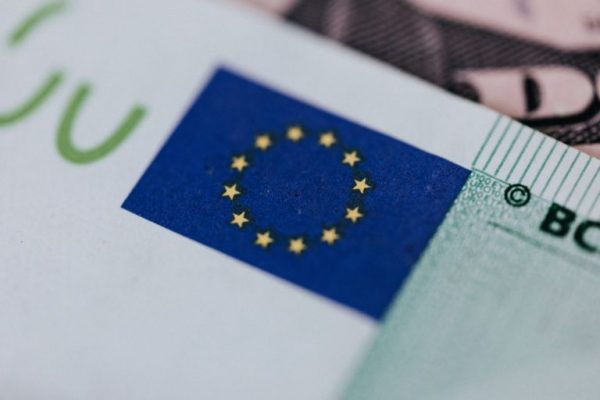
Deutsche Bank places Greek banks at the top of the choices of the Eurozone banks. According to a relevant analysis by the bank, Greece stands out and is expected to continue to stand out thanks to the strong prospects of the economy, boosted by the Recovery Fund and the upward trajectory of ratings by the agencies, while the increase in lending will be the strongest in the region, supporting the sector.
The shares of Alpha Bank, Eurobank, National Bank and Piraeus Bank are the names he chooses among the shares of the European south, for which he recommends a buy, as they comply both with the course of the country and with the advantages of the sector. The list of Greek stocks includes the Italian bank BMP, the Portuguese Milennium BCP and the Spanish Sabadell.
In its latest analysis, the German bank upgraded the shares of Eurobank (buy recommendation, target price 1.70 euros from 1.45 euros) and Piraeus Bank (buy recommendation, target price 3 euros from 2, 95 euros), while keeping the buy recommendations for National Bank, but increasing the target price to 6.15 euros from 5.10 euros and for Alpha Bank to 1.60 euros from 1.55 euros.
Deleveraging and borrowing
Greece has suffered the most deleveraging in Europe for more than a decade, mainly due to a reduction in non-performing loans (which at one time accounted for nearly half of loans) and a lack of demand. This remains an issue in mortgages, where declines remain significant, around -4% year-on-year, and has led to a small weighting of total loans relative to other countries.
However, corporate lending is now growing at a near double-digit rate and is expected to continue so, allowing total loans to be in positive territory year-on-year (around +3%). Overall, hopes are based on a revival in investment, with GDP growth well above the EU average, for which EU funds should remain a large contributor. “Even if the multipliers for the total injection of around €70 billion until 2026 are likely to remain relatively low, the overall impact (given the country’s low leverage) will undoubtedly be strong,” the bank explains.
“As a result of our analysis, we confirm our previous position that the volume boost from NGEU funds is not going to be a material factor in most cases, with Greece likely to be the main beneficiary. The importance of the NGEU will be much less in Portugal, Italy and, above all, Spain, where the fight against deleveraging is likely to last longer than in the other southern European countries,” continues DB.
The details
As Deutsch Bank notes, while the resilience of European economies has been better than initially expected, with most EU countries having recovered to pre-Covid GDP levels (except Spain, which is likely to close the gap in Q2 quarter), the risk of high inflation and economic deterioration due to higher interest rates has reignited fears that southern European countries could once again become the weakest link in the EU. Sovereign risk is seen as a potential negative factor for these countries, and therefore for their banks. Looking at the details Deutsche Bank finds the following:
-Government bond spreads continue to perform well (especially in Greece, Portugal and Spain, while Italy poses the main question mark). In fact, Greece has been the best performer of late thanks to positive economic developments and recent credit rating upgrades, approaching investment grade, with its recovery allowing many long-term investors to start investing in Greek bonds for the first time. time after a very long time, leading to cheaper financing in the future.
– the potential need to reduce budget deficits would pose more of a threat in the form of an economic slowdown than a direct impact on banks’ balance sheets or capital due to their direct exposure to government bonds, and
– Southern European economies are expected to be among the best performers in 2023-2025, which is supportive of their ratings (only Italy faces a slight threat).
Latest News

DM Dendias: We talk With Turkey But We Always Bring Up Their Unacceptable Positions
Second and last day of closely watched conference, entitled 'Metapolitefsi 1974-2024: 50 Years of Greek Foreign Policy', also included appearances by PM Mitsotakis, Ex-PM Tsipras and PASOK leader Nikos Androulakis, among others

Rhodes Airport Tops Fraport Greece’s Regional Airports in 2024 Performance
According to Fraport's data, more than 35 million passengers (specifically 35.2 million) were handled by Fraport-managed airports during the 11 months.

European Central Bank Cuts Interest Rates by 25 Basis Points
It is the fourth cut of interest rates by Europe’s central bank, a move expected by the markets and financial analysts leading to the rate settling at 3%.

Airbnb: New Measures Add €600 in Extra Costs for Property Owners
Property managers face an immediate administrative fine of 5,000 euros if access to the inspected property is denied or any of the specified requirements are not met.

Economist: Greece Included in the Best Performing Economies in 2024
Meanwhile, Northern European countries disappoint, with sluggish performances from the United Kingdom and Germany.

EasyJet Expands Its Routes from Athens
The airline’s two new routes will be to London Luton and Alicante and they will commence in summer 2025.

Capital Link Forum Highlights Greece’s Economic Resurgence; Honors BoG Gov Stournaras
Capital Link Hellenic Leadership Award recipient, Bank of Greece Gov. Yannis Stournaras, an ex-FinMin, was lauded for his pivotal role during Greece’s economic recovery

Tourist Spending in Greece Up by 14%, Visa Card Analysis Shows
Greece’s capital Athens emerged as the most popular destination, recording a 17% increase in transactions with Visa cards, surpassing even the cosmopolitan island of Mykonos.

Inflation in Greece Unchanged at 2.4% in Nov. 2024
The general consumer price index (CPI) posted a 0.4% decrease in November compared to the previous month

2024 Christmas Holidays: Extended Shop Hours Schedule
The 2024 Christmas Holidays extended shop hours schedule commences on Thursday, December 12 and runs until the end of the year.


![Φυσικό αέριο: Δυναμικό come back του LNG στην Ελλάδα [γραφήματα]](https://www.ot.gr/wp-content/uploads/2023/01/OT_naturalgas-90x90.jpeg)












![Fraport: Πάνω από 35 εκατ. επιβάτες στα αεροδρόμια το 11μηνο – Πτώση στη Μύκονο [πίνακας]](https://www.ot.gr/wp-content/uploads/2022/06/fraport-90x90.jpg)


























 Αριθμός Πιστοποίησης Μ.Η.Τ.232433
Αριθμός Πιστοποίησης Μ.Η.Τ.232433